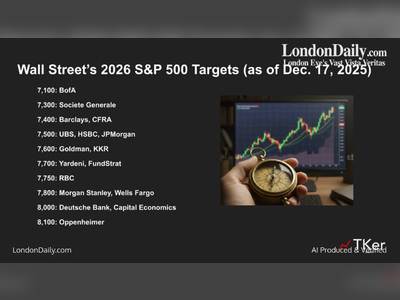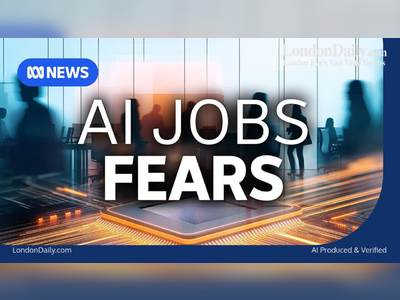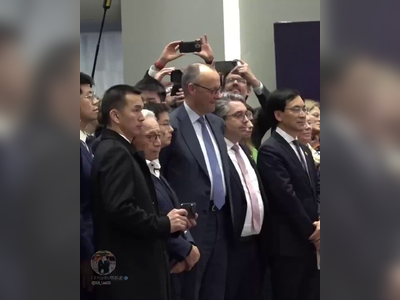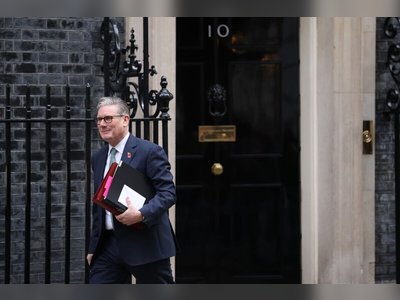0:00
0:00
Trump's Stance on H-1B Visas: Balancing Economic Value and National Interest
In the heated debate over the H-1B visa program, Donald Trump advocates for its benefits, aligning with proponents of high-skill immigration.
Donald Trump’s endorsement of the H-1B visa program has brought renewed focus to the contentious debate over high-skill immigration in the United States.
While his stance contrasts sharply with his earlier hardline immigration policies, Trump’s comments underscore the economic and strategic importance of the visa program, particularly in a globalized economy.
The Debate
The debate gained momentum last week after Elon Musk and Vivek Ramaswamy publicly defended the H-1B visa program on social media, countering critics like Steve Bannon who advocate for sharp reductions in immigration, including legal pathways.
The H-1B program, which grants temporary visas to high-skilled workers, has long been a polarizing issue in U.S. immigration policy.
Trump’s remarks, delivered to the New York Post, emphasized the program’s utility.
“I have many H-1B visas on my properties,” Trump said.
“I’ve been a believer in H-1B. I have used it many times. It’s a great program.” His comments position him as a proponent of what some have termed "enlightened nationalism," a perspective that values the economic contributions of skilled immigrants.
Economic Contributions
Proponents of the H-1B visa program argue that it plays a critical role in maintaining the United States’ competitive edge in technology and innovation.
The program allows U.S. companies to hire foreign workers with specialized skills, often filling gaps in the domestic labor market.
Data from the U.S. Citizenship and Immigration Services shows that H-1B workers are disproportionately employed in industries like software engineering, data analytics, and advanced research, which are vital for economic growth.
Critics, however, argue that the program can displace American workers and suppress wages.
Some have called for stricter regulations to prevent potential abuses, such as companies using the program to outsource jobs or avoid hiring domestic talent.
A Shift in Trump’s Immigration Rhetoric
Trump’s support for the H-1B program marks a notable departure from his earlier immigration policies, which included restrictions on work visas and calls for reducing overall immigration levels.
During his presidency, the Trump administration implemented measures to tighten H-1B visa requirements, citing concerns over fraud and misuse.
His recent remarks suggest a nuanced perspective that acknowledges the economic benefits of skilled immigration while still advocating for reforms to address potential vulnerabilities in the system.
This shift aligns with a broader push among business leaders and policymakers to modernize the H-1B program rather than dismantle it.
Broader Implications
The debate over H-1B visas reflects larger questions about the role of immigration in shaping the United States’ economic and cultural identity.
Supporters, including tech industry giants, argue that restricting high-skill immigration could hinder innovation and economic growth.
Opponents, like Bannon, frame the issue as a matter of protecting American jobs and prioritizing domestic workers.
The Global Context
The H-1B program also has significant implications for the United States’ position in the global talent race.
Countries like Canada and Australia have implemented policies to attract skilled immigrants, often positioning themselves as alternatives to the U.S. for talent seeking opportunities abroad.
In this context, maintaining a robust and fair high-skill immigration system is seen as essential for retaining the United States’ competitive edge.
While his stance contrasts sharply with his earlier hardline immigration policies, Trump’s comments underscore the economic and strategic importance of the visa program, particularly in a globalized economy.
The Debate
The debate gained momentum last week after Elon Musk and Vivek Ramaswamy publicly defended the H-1B visa program on social media, countering critics like Steve Bannon who advocate for sharp reductions in immigration, including legal pathways.
The H-1B program, which grants temporary visas to high-skilled workers, has long been a polarizing issue in U.S. immigration policy.
Trump’s remarks, delivered to the New York Post, emphasized the program’s utility.
“I have many H-1B visas on my properties,” Trump said.
“I’ve been a believer in H-1B. I have used it many times. It’s a great program.” His comments position him as a proponent of what some have termed "enlightened nationalism," a perspective that values the economic contributions of skilled immigrants.
Economic Contributions
Proponents of the H-1B visa program argue that it plays a critical role in maintaining the United States’ competitive edge in technology and innovation.
The program allows U.S. companies to hire foreign workers with specialized skills, often filling gaps in the domestic labor market.
Data from the U.S. Citizenship and Immigration Services shows that H-1B workers are disproportionately employed in industries like software engineering, data analytics, and advanced research, which are vital for economic growth.
Critics, however, argue that the program can displace American workers and suppress wages.
Some have called for stricter regulations to prevent potential abuses, such as companies using the program to outsource jobs or avoid hiring domestic talent.
A Shift in Trump’s Immigration Rhetoric
Trump’s support for the H-1B program marks a notable departure from his earlier immigration policies, which included restrictions on work visas and calls for reducing overall immigration levels.
During his presidency, the Trump administration implemented measures to tighten H-1B visa requirements, citing concerns over fraud and misuse.
His recent remarks suggest a nuanced perspective that acknowledges the economic benefits of skilled immigration while still advocating for reforms to address potential vulnerabilities in the system.
This shift aligns with a broader push among business leaders and policymakers to modernize the H-1B program rather than dismantle it.
Broader Implications
The debate over H-1B visas reflects larger questions about the role of immigration in shaping the United States’ economic and cultural identity.
Supporters, including tech industry giants, argue that restricting high-skill immigration could hinder innovation and economic growth.
Opponents, like Bannon, frame the issue as a matter of protecting American jobs and prioritizing domestic workers.
The Global Context
The H-1B program also has significant implications for the United States’ position in the global talent race.
Countries like Canada and Australia have implemented policies to attract skilled immigrants, often positioning themselves as alternatives to the U.S. for talent seeking opportunities abroad.
In this context, maintaining a robust and fair high-skill immigration system is seen as essential for retaining the United States’ competitive edge.











